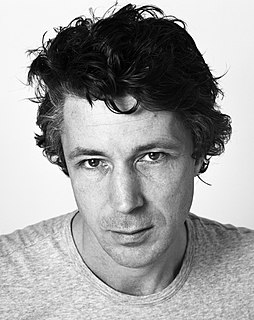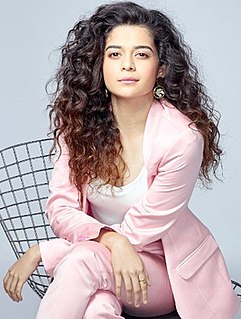A Quote by Christian Bale
Personally, I love going to see a film when you can really watch a character. If you've just read some article about who the actor is sleeping with, that's gonna be at the back of your mind all the time while you're watching the film.
Related Quotes
It's hard to see a film one time and really "get it," and write fully and intelligently about it. That's a review. That's not film criticism. And there's so many expectations involved, too. You're going in to see the latest Martin Scorsese or Stanley Kubrick film, you really have high hopes, and you can't help but find that it's not exactly what you had in your head going in. Until you can watch it again, you can't accept the work for what it intends to be. It takes at least a second viewing.
I actually like a film in a gallery, because you don't have to show up at a certain time to see something, you can just walk in whenever. I like that freedom to be able to see something anytime. I personally don't mind watching something knowing that it's not the beginning and then just letting it run its cycle.
Definitely my generation and beyond grew up in theaters and when you make a film you think of the theatrical experience. You think of that big screen in the darkened theater with a lot of people, so that's always the thought behind it. If that's the case, it's nice if that's available. That's great, but I don't really mind if they're watching films on a plane. I don't mind. Anybody who just wants to watch a movie, I can't complain. If that's the way they're going to watch them, that's the way they watch them. Who am I to judge?
I don't usually see what I've done. I don't often watch the film or watch the show. It's really about that experience on-set and within the scene. Because later, when the film comes out or the show comes out it's the editor's realm or the director's realm. But that moment on set, that's that electricity between me and another actor, and that's really what excites me.
If I hear a film clip, or I happen to see some image from a film - you go to a film festival, and they show some clip of the movies you've been in, most of the time I sit there and go, "Oh God, I should have... should have... that was terrible." But I think that's a natural part of this work, because really, your work is never over. Of course I can leave it alone and walk off the set and never think about it again when it's done. But your work is really ongoing all the time.
There is one scene where he is kissing up my back. It is really sexy and I didn't know he was going to do it. He started doing it and in the film you see me saying, whew, and that wasn't acting, that was really me thinking, whew, oh my goodness Daniel Craig is kissing my back! I really did. I had to stop and remind myself that I was playing a character and I was acting in a film.
Being an actor in TV or movies is different. A film or TV actor, if put in theatre, won't know certain dimensions, while a theatre actor won't know certain things when he comes before the camera. So I think a film actor can learn emoting from this theatre counterpart, while the theatre actor can learn about camera techniques from the film actor.
People call me a theater actor, but I'm just an actor. But I tell my friends all the time - especially a lot that do theater and haven't done a lot of TV/film - that you have so much more control over your work onstage. When you go onstage, you can really see the difference between people who can really do it, and people who are just kind of pretending to do it. There is no editor, there's nothing that's going to stop the actor from showing what they can do unless it's not a well-written role.
There is something that might be called cinematic beauty. It can only be expressed in a film, and it must be present for that film to be a moving work. When it is very well expressed, one experiences a particularly deep emotion while watching that film. I believe that it is this quality that draws people to come and see a film, and that it is the hope of attaining this quality that inspires the filmmaker to make his film in the first place.



































